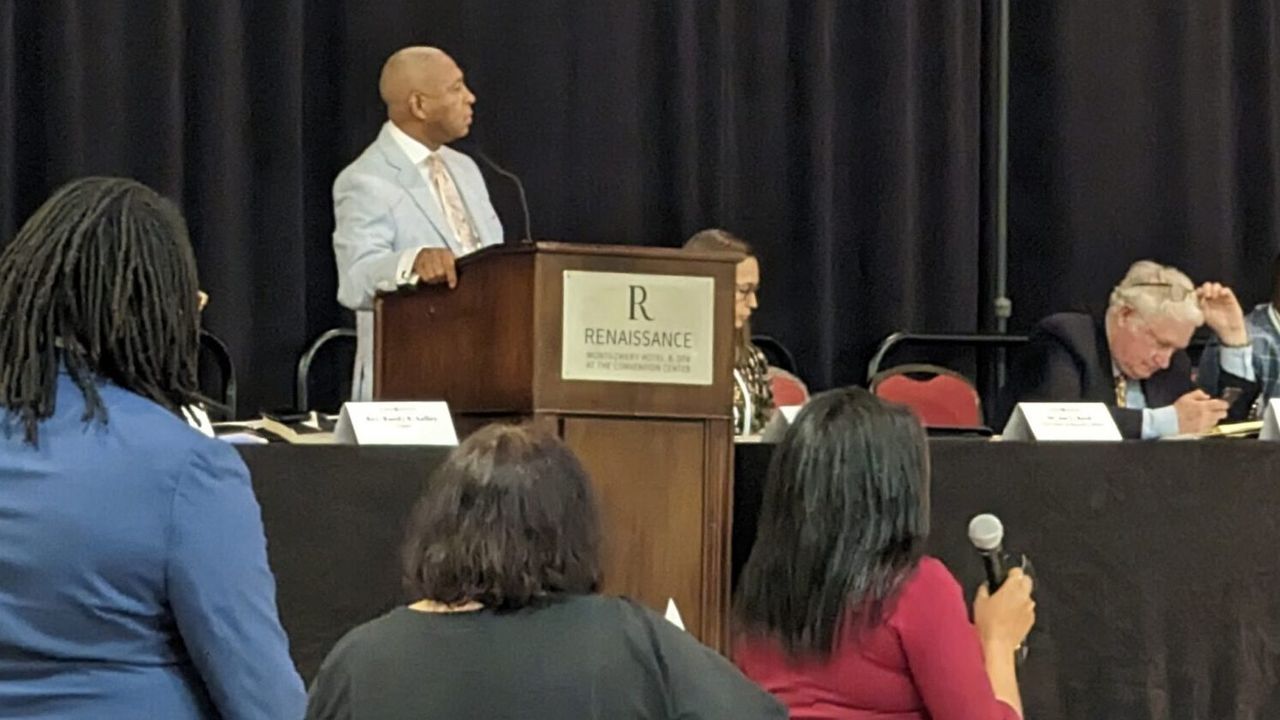DNC to review complaint over Alabama Democratic Party meeting
The Democratic National Committee’s Executive Committee voted Saturday to refer a complaint about the Alabama Democratic Party’s abolition of diversity caucuses to its Rules and Bylaws Committee (RBC).
The State Democratic Executive Committee voted on May 6 to eliminate caucuses for youth, LGBTQ+ individuals and people with disabilities and reduced the power of other caucuses. The move brought sharp criticism from the affected caucuses and a complaint from Vice Chair Tabitha Isner and more than 40 Democrats.
Alabama Democratic Party Chair Randy Kelley declined to comment Saturday, referring to earlier comments where he said he believed new bylaws adopted at the May 6 meeting would boost representation.
Democrats at the May 6 meeting also said party leaders charged a previously unannounced $50 fee to enter the meeting. Isner called it a “poll tax;” Kelley said there was precedent for the fee.
Isner wrote in a text message Saturday that she “would be happy to introduce you to the more than 50 duly elected Democrats in Alabama who lost their seat on the committee when Kelley implemented a surprise poll tax and a grandfather clause that applied only to those he hand-selected.”
“He insists that representation was not lost because he intends to appoint their replacements,” Isner wrote. “But representation cannot be appointed. All people deserve the right to choose who represents them. That is how representative democracy works.”
DNC Chair Jaime Harrison, who chaired the meeting, said party leaders would work to an “even-handed” investigation of the complaint. But he also mentioned George Orwell’s 1945 novel “Animal Farm,” where a group of pigs who drive a farmer out eventually take the role of the oppressors on their farm.
“One thing that’s very important, particularly to those of us who have lived in the South, who know how Black folks were kept out of the party, one thing we do not want to see is that we do the same thing,” said Harrison, a South Carolina native who is Black.
No timeframe for the investigation has been set.
The RBC investigated complaints about Alabama Democratic Party leadership elections in 2018. The RBC directed the state party to adopt new bylaws that, among other steps, created caucuses for Hispanics, Native Americans, Asian and Pacific Islanders, LGBTQ+ individuals, youth, and people with disabilities.
A months-long standoff between the DNC and the state party took place. The DNC eventually deposed Chair Nancy Worley and Kelley, then the vice-chair of the party, and recognized a faction aligned with then-U.S. Sen. Doug Jones, which adopted the bylaws and elected new leadership.
A faction of the party loyal to Vice Chair of Minority Affairs Joe Reed argued that the new diversity caucuses diluted the power of Black voters, who make up a majority of Alabama’s Democratic electorate. Last August, Reed’s faction won control of the party and elected Kelley chair. At the May 6 meeting, the party adopted new bylaws that abolished some of the diversity caucuses and reduced the powers of others.
The complaint from Isner and the other Democrats seeks to have the meeting declared null and void and says the new rules do not comply with the DNC.
Members of the RBC criticized the May 6 meeting at a gathering on Friday. Citing the U.S. Supreme Court’s recent decision in Allen v. Milligan, Yvette Lewis, an RBC member who helped lead the 2019 investigation of the state party, said Alabama had an opportunity to elect Democrats, but needed to ensure that young people turn out. Harrison echoed that sentiment Saturday.
“Alabama has a unique opportunity now,” he said. “In order to take advantage of that and other opportunities, we’re all going to have to work together.”
